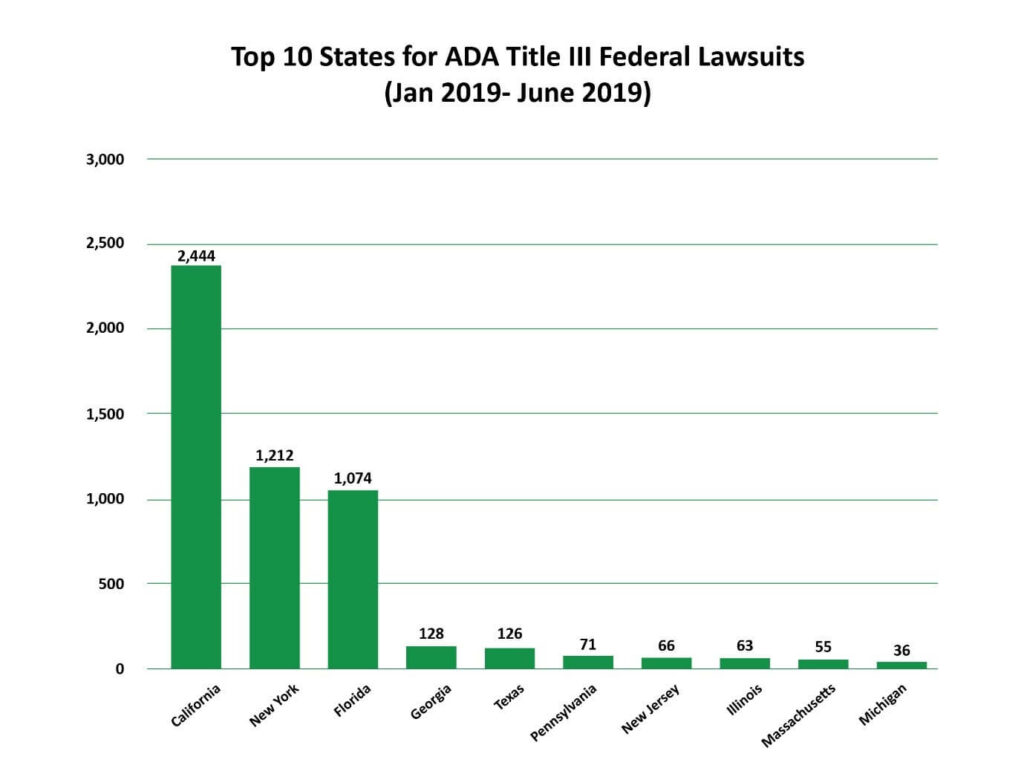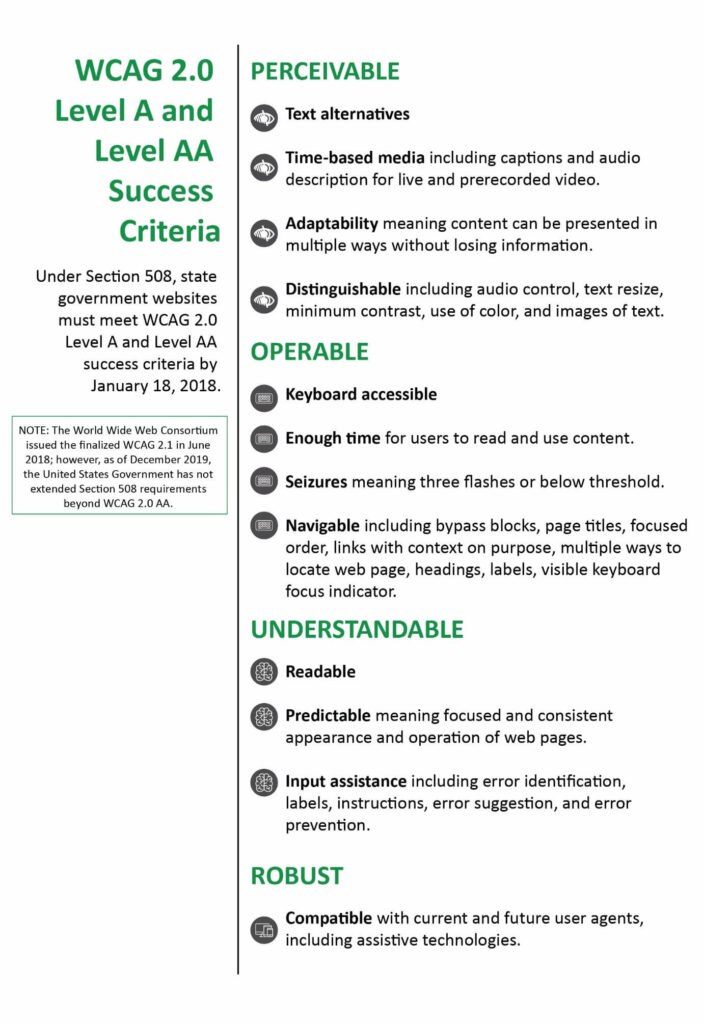Introduction
California is one of the leading advocates of digital accessibility in the United States. The state laws and public policies refer directly to the federal law Section 508 of the Rehabilitation Act.
Section 508 outlines specific laws that require accommodations to make electronic communications and information technologies accessible to people with disabilities.
It also adds clarity to web accessibility rules by making WCAG 2.0 the standard. In essence, California’s accessibility laws are the most stringent in the country. The focus of attention in litigation circles lately has been the web-related federal ADA compliance lawsuits.
Seyfarth Shaw’s research shows that three states – California, New York, and Florida – led the country with the highest number of lawsuits in 2019 with 2,444, 1,212, and 1,074 filings respectively.

Source: Seyfarth Shaw
What Makes California Laws Different?
The state of California is one of the most active legal spaces when it comes to website accessibility.
California’s Unruh Act
California businesses are required under federal law (ADA) and state law (Unruh Act) to demonstrate their websites are accessible. No organization with an online presence is exempt from state law.
This carries a significant risk even for organizations based outside of the state if they choose to ignore California’s laws and standards such as the Unruh Act.
California leads the country in web accessibility-related lawsuits and the Unruh Act is what makes the accessibility lawsuits in the state different from the rest of the country.
- Any violation of the ADA is a violation of the Unruh Act, which is a state law.
- Any violation of the Unruh Act alone requires the intent to discriminate to be demonstrated.
- Sites that are inaccessible for blind customers are counted as discrimination.
- Websites with a physical location are subject to ADA Title III.
The State courts of California enforce a stricter implementation of the web accessibility laws than the federal courts as they have more standardized regulations.
Recent settlements
- In 2018, a Court ordered the Whisper Lounge Restaurant to make its website accessible to people with vision impairments using screen readers. The Court ordered the restaurant to make their website compliant with Web Content Accessibility Guidelines (WCAG) 2.0 (Level A, AA).
- The Ninth Circuit Court of Appeals ruled that Domino’s Pizza violated the Americans with Disabilities Act (ADA) and ordered the pizza chain to make its website accessible to people with vision impairments.
Steps to Ensure Businesses in California Don’t Violate the Unruh Act
Businesses in California have to make their websites compliant with the Unruh Act. Here are some of the steps businesses can take to ensure their websites are compliant:
- Hire individuals with disabilities to test the website and apps.
- A comprehensive audit of the website should be carried out that includes automated, manual, and assistive technology testing.
- Document the accessibility efforts to demonstrate progress and intent.
- The audit should include remediation guidance for the in-house web development team to make your website accessible and comply with the ADA and the Unruh Act.
- Periodic re-auditing after key updates like site renovations will help identify and resolve accessibility issues.
- Prioritize high-visibility issues that are most likely to impact users with disabilities.
California passes new digital accessibility laws applicable to State agencies
On October 14, 2017, California Governor Jerry Brown signed into law AB 434 to create a new California Government Code Section 11546.7.
The new law states that by July 1, 2019, State agencies and State entities must ensure that their websites comply with WCAG 2.0 (Level AA) or a subsequent version, and Section 508 of the Rehabilitation Act. In addition, they must include a certificate of compliance with the new law on their home page.

Final Thoughts
The State of California, is raising the bar in terms of website accessibility standards and mitigation of lawsuits. On September 25, 2018, the DOJ issued a clarification that it is still evaluating whether enforcing specific web accessibility standards through regulation is necessary to ensure compliance with the ADA.
The need of the hour is a stringent federal law laid out in straightforward language on what constitutes non-compliance. Until such time, states like California are racing ahead of the Federal Government to put in place stringent accessibility standards and enforcing them.
About codemantra
codemantra is a leading Intelligent Document Processing (IDP) Solutions Provider. Its AI-driven platform automates digital document accessibility compliance; captures, classifies, and extracts data; and transforms documents into any output format.
How codemantra helps State Agencies Achieve Section 508 Compliance?
codemantra helps state, local and federal governments to comply with ADA, Section 508 mandates that requires their websites and digital documents like PDF’s or MS Office documents to be made accessible to people with disabilities.
Get in touch with us at 1-800-769-9715 or email us at engage@codemantra.com to speak to our expert accessibility professionals.
If you are interested in a demo, click the link to register







